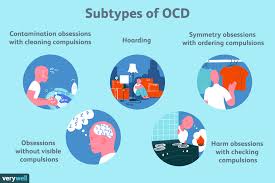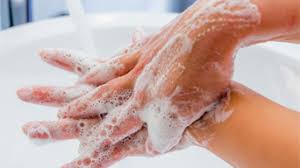Disease
Diseases
DEPRESSION

DEPRESSION: It is most common mental health problem. It is characterised by persistent low mood, low energy, decreased interest in activities which previously used to be pleasurable, unreasonable guilt, poor concentration, low confidence, hopelessness, disturbed sleep and appetite and suicidal thoughts in varying combinations for a period more than 2 weeks.
It is generally accompanied with following symptoms:
1) Anxiety
2) Obsessive symptoms (recurrent , repetitive unreasonable thoughts in mind)
3) Alcohol Use
4) Headache and body ache
IMPORTANT FACTS:
1) Depression is one of major cause of deterioration of sugar levels and high blood pressure despite treatment.
2) According to World Health Organisation 4.5% of the total Indian Population suffers from Depression and that is over 5 crore people by an estimate.(Depression and other common mental disorders- Global health Estimates)
3) Depression is leading cause of Suicide.
4) According to National Mental Health Survey (NMHS) , 85% depressive patients are unable to take treatment or remain unrecognised.
5) According to NMHS, 2.5 months are lost by depressive patient before he takes first proper consultation.
TREATMENT
Medications (to be given under supervision after assessment) like Fluoxetine, sertraline , paroxetine , duloxetine etc with or without psychotherapy ( Cognitive Behavior Therapy).It improves markedly with treatment and early intervention.
ALCOHOL USE DISORDER


It is compulsive use of alcohol, inability to control its use and negative emotional state when not using it. It is diagnosed if any of three criteria are present for more than a month.
1) Tolerance : Need to increase dose of alcohol intake for getting same pleasure
2) Craving : Strong desire to have alcohol
3) Withdrawal Symptoms like anxiety, sleeplessness, tremor, palpitation, irritability, seizures, hallucinations etc
4) Inability to cut down
5) Persisting with alcohol use despite its harmful effect on body or life
6) Negligence of activities other than alcohol.
IMPORTANT FACTS:
More than 1 crore (10 million) people are suffering from this disorder in India
1) It is major cause of road traffic accidents in India
2) It is leading cause of liver dysfunction and major cause of gastric problems and heart related problems.
3) It is easily diagnosable but hardly ever properly addressed and treated.
4) It is one of the major reason for broken families and poor work performance.
Treatment
Withdrawal symptoms can be managed with medications like benzodiazepines, multivitamins, sedatives and baclofen (all medications need to be regularly calibrated according to withdrawal symptoms). Patient need to take medications for relapse prevention ( like acamprosate, naltrexone etc) after withdrawal symptoms are over to prevent relapse. Motivation Enhancement therapy is specific type of counselling for these patients to keep them motivated to take treatment and remain abstinent.
SCHIZOPHRENIA

Schizophrenia is a chronic and severe mental disorder that affects how a person thinks, feels, and behaves.
It is characterised by Suspiciousness, fearfulness, hallucinations, disorganised behaviour, blunting of expressions, reduced speech, false beliefs, which are held strongly by patient, poor hygiene , decreased interactions, neglect of work and basic needs.
It is a chronic disorder and causes marked disability.
IMPORTANT FACTS
Patients can be improved and a large number of patients can live normal life with treatment.
TREATMENT
Antipsychotics like olanzapine, haloperidol, risperidone etc are generally used and in resistant cases clozapine is used. With appropriate dosage patient is likely to improve in 3-6 months time. Medication may need to be continued for more than 2 years.
Those patients who develop decreased speech or incoherent speech, disorganised behaviour have poorer prognosis.
OBSESSIVE COMPULSIVE DISORDER (OCD):


OCD is characterised repetitive, recurrent, intrusive thoughts (like dirt, doubts etc ) leading to repetitive actions like checking, washing hands, repetitive counting which are difficult to be controlled leading to marked impairment. OCD patients commonly have anxiety when they try to stop repetitive actions.OCD is also often associated with depression.
IMPORTANT FACTS:
many times OCD patients try to enforce their beliefs or actions on family members too and make them do what they are doing repetitively.
TREATMENT: Patient need to be given SSRI medications (anti-depressants) but at higher doses and response does come after 2-3 months, so patients need to be keep patience as improvement is gradual. Exposure and Response Prevention (ERP) a specific type of psychotherapy has quite good response in OCD.
PANIC DISORDER

OCD is characterised repetitive, recurrent, intrusive thoughts (like dirt, doubts etc ) leading to repetitive actions like checking, washing hands, repetitive counting which are difficult to be controlled leading to marked impairment. OCD patients commonly have anxiety when they try to stop repetitive actions.OCD is also often associated with depression.
IMPORTANT FACTS:
many times OCD patients try to enforce their beliefs or actions on family members too and make them do what they are doing repetitively.
TREATMENT: Patient need to be given SSRI medications (anti-depressants) but at higher doses and response does come after 2-3 months, so patients need to be keep patience as improvement is gradual. Exposure and Response Prevention (ERP) a specific type of psychotherapy has quite good response in OCD.
SOCIAL PHOBIA

It is fear of embarrassment or humiliation in social situations like party , class , group meetings etc because of which patients have anxiety, restlessness, poor confidence, tremors, sweating, fast heartbeat while facing social situations.
IMPORTANT FACTS:
Patients refrain facing such situations and generally keep to themselves. If patient is child he may not make friends or give replies in class. If patient is an adult he may have difficulty giving presentations or wouldnot attend parties and office meetings.
TREATMENT:Medications and Psychothetrapy (Cognitive Behavior therapy ) are effective in improving this disorder.
DEMENTIA

It is characterised by progressive fall in mental abilities mostly reflecting as forgetfulness in daily activities along with difficulty in organising tasks and maintaining daily routine.
IMPORTANT FACTS:
It is mostly seen with old age and brain shows physical changes in it. Medications can slow down the progress of disease but cant improve it.
TREATMENT:Donepezil, Rivastigimine etc are the medications used in it.
BIPOLAR DISORDER

It is characterised by episodes of both depression and mania or repeated episodes of mania.
IMPORTANT FACTS:
it causes more disability than mania or depression alone
TREATMENT:Mood stabilizers are mainstay of treatment along with drugs like olanzapine, lurasidone etc. CBT could be useful during depressive phase of Bipolar disorder.
